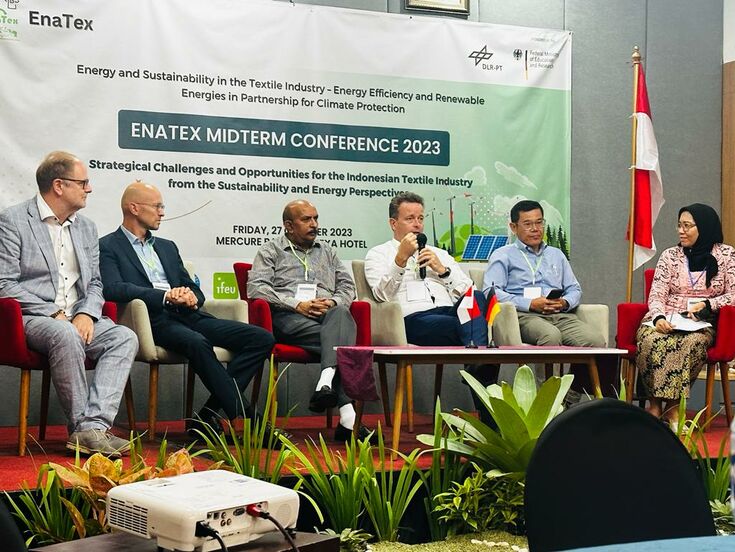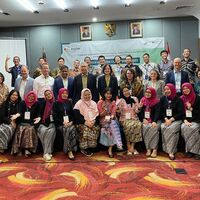How can energy consumption in the processing of textiles be reduced and production in the Indonesian textile industry made more sustainable? The Enatex research project is getting to the bottom of this question. At the mid-term conference in Bandung, the project partners, in the presence of around 130 guests from industry, politics and various organizations, gave an interim assessment at the halfway point of the funding period.
Enatex is managed by the Institute for Future Energy and Material Flow Systems (IZES) and funded by the Federal Ministry of Education and Research with 1.9 million euros. The Hochschule Niederrhein, with its FTB and AUGE institutes, is contributing almost 992,000 euros. The aim is to save at least 15 percent of primary energy and switch completely to regional, renewable energies in textile finishing.
Many partners are on board to drive forward this move away from fossil fuels for electricity and heat supply in Indonesia. Six scientific institutions and four corporate partners from Germany alone are participating and deriving potential for improvement from the study of production processes there. In Indonesia, two universities and two large textile companies are involved. "This project is a real eye-opener," praises research partner Ajai Mishra from Sritex, for example.
Together, the project participants are examining, for example, how drying energy can be saved with minimal application or what efficiency potential can be expected from the new ultrasonic technology. However, many other aspects are also being considered: Regenerative energy sources such as photovoltaics, improved energy management, the optimal use of all systems through to the installation of heat exchangers. All investigations are accompanied by occupational safety measures and holistic sustainability management.
"The interim results show how theCO2 footprintof textile production can be reduced through a combination of efficient process management on the one hand and a gradual expansion of renewable energy on the other," summarize Prof. Dr. Maike Rabe, head of the project at The Hochschule Niederrhein, and Prof. Dr. Monika Eigenstetter. The researchers Evelyn Lempa and Aslihan Memisoglu add: "The results that we are working on as a model with our Indonesian partners will be very easy to transfer to other textile countries."

















